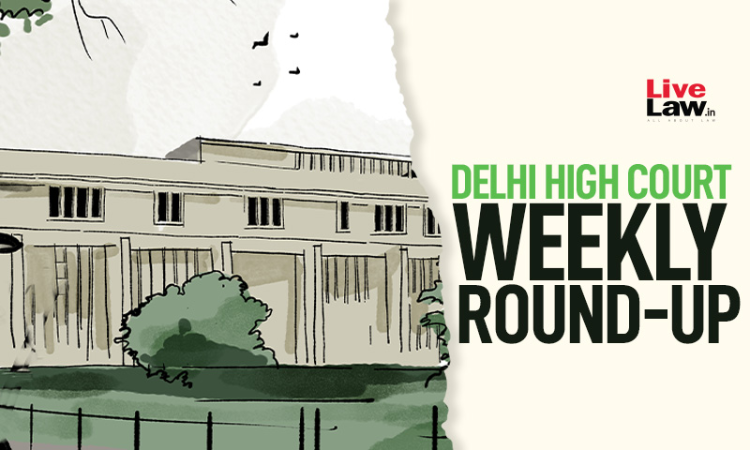Delhi High Court Weekly Round Up: January 31 To February 6, 2022
Nupur Thapliyal
6 Feb 2022 11:54 AM IST

Next Story
6 Feb 2022 11:54 AM IST
ORDERS/ JUDGMENTS OF THE WEEK1. Arbitral Award Is To Be Executed At A Place Where Judgment Debtor Resides, Carries Business Or Has Assets: Delhi High CourtCase Title: Continental Engineering Corporation v. Sugesan Transport Pvt Ltd.Citation: 2022 LiveLaw (Del) 59The Delhi High Court recently dismissed an execution petition filed under Section 36 of the Arbitration & Conciliation Act by...
